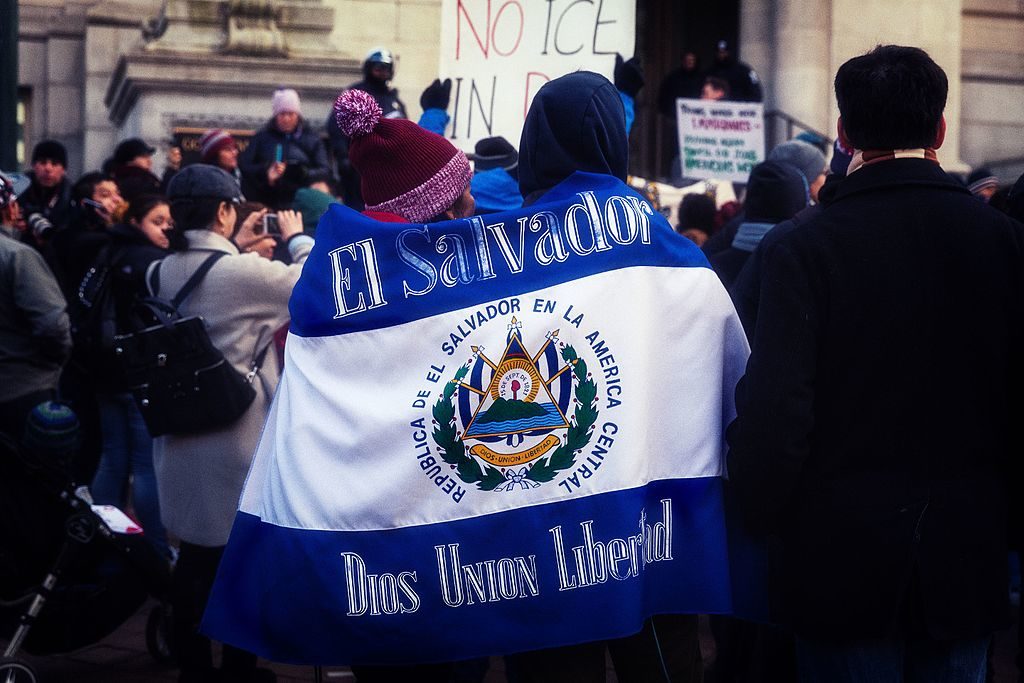Decision predicted to bring dismal consequences on Long Island

They’ve bought homes, established careers and started families, but for Salvadorans living in the United States under TPS, the American dream they’ve worked so hard to build is looking much more uncertain. On Jan. 8, the Department of Homeland Security announced it would not be renewing TPS, or temporary protected status, for the more than 200,000 Salvadoran recipients living in the United States. The decision affects not only 16,200 Salvadorans in New York, but 15,600 U.S. born children who have Salvadoran parents who are TPS holders.
Congresswoman Kathleen Rice was among those who spoke out against the announcement, saying it was a “shameful, dangerous decision from a stridently anti-immigrant administration.”
“Salvadoran TPS recipients in our state have lived in this country for an average of 21 years—they’ve purchased homes, started families, opened businesses, and become members of our communities. Thousands of Salvadoran children were born here and have never called another country home. Instead of forcing these families back to the crime and corruption that awaits them in El Salvador, Speaker Ryan and the Republicans in Congress must immediately take up legislation to protect TPS holders and DACA recipients,” Rice said in a statement.
The decision to terminate the status—granted to individuals living in the United States if conditions in their country, such as ongoing armed conflict or environmental disasters, prevent them from returning safely—is not entirely surprising; last year TPS was not renewed for 58,600 Haitians and 5,300 Nicaraguans. Revoking TPS for these individuals is expected to have a significant impact on the economy; according to the Center for American Progress, 13,500 workers in New York are TPS holders and without Salvadoran workers under TPS, the state GDP will lose $958.3 million annually.
The loss of these workers will be significant; 19.9 percent of Salvadoran workers with TPS in New York work in accommodation and food services; 15.6 percent work in manufacturing and 11.7 percent work in administrative, support and waste management services.
“Salvadorans found safe haven on our shores and have called the U.S. home for more than a decade. They have worked hard, paid taxes, bought homes and had families—all in an effort to achieve the American Dream,” said Gov. Andrew Cuomo in a statement. “This federal administration’s decision to tear families apart, disrupt small businesses and lead those who have become part of the American fabric to an uncertain future, is disgraceful and unjust. We will work day in and day out to connect with impacted New Yorkers and make sure they know their rights and legal options in order to help protect these hard-working men and women.”
According to The Washington Post, Salvadoran TPS recipients have a median household income of around $50,000 a year and 34 percent of them have mortgages. Not only are these individuals making money for themselves, but many of them are also sending funds back to relatives and loved ones back in El Salvador—a major source of financial support for the country.
Patrick Young, an attorney and program director with the Central American Refugee Center (CARECEN), predicts the loss of funds flowing into El Salvador will result in an increase of illegal immigration.
“About $600 million goes back to family each year. That loss of money, coupled with the deportation of a couple of hundred thousand people will have dire consequences,” said Young. “What would likely occur is people heading north because their source of support will be gone.”

TPS was originally granted for Salvadorans in March 2001 after two earthquakes tore the area apart. And while the Department of Homeland Security says conditions have improved, other issues, such as rampant gang violence, poverty and a high homicide rate continue to devastate the country.
Not only will the recension of TPS hurt El Salvador, but the loss of the Salvadoran community will be a blow to Westbury and the greater Long Island area.
“People who had been working in stores or offices will lose their jobs and stand on street corners, hoping to get picked up for landscaping. People will no longer be able to make their mortgage payments and you’ll see zombie homes because they’ve been foreclosed on,” Young said. “Children will be left behind and have no means of support. They’re U.S. citizens who will have to go on public assistance. You had a situation where parents were nurturing their children and paying for them, to a situation where it’s going to fall on the Long Island taxpayer.”
Legal offices have been flooded with calls from TPS holders looking for a way to legally stay in the country before their status ends on Sept. 9, 2019. Young advises individuals to be wary of scams, and to make sure they’re going to attorneys and organizations able to offer competent legal advice. He’s also been telling clients to make sure they get their doctors’ appointments in, renew their licenses and stock up on all the medicines they need; all things that might be impossible come September’s deadline.
And for those TPS holders who are unable to attain permanent status, they face the difficult choice of whether to stay in the country illegally, or return to a country unable to accommodate them. Young said that in initial CARECEN screenings, about 75 percent of individuals don’t qualify to remain the country. He estimates that many will stay and take their chances with deportation, rather than with the conditions in El Salvador.
“A lot of them will stay unless they get arrested and deported. The average person has lived here for 20 years, the minimum is 17 years. These are people who have been here their entire adult lives,” said Young. “There was no legal requirement to withdraw this status, it could have easily been renewed. It’s simply the president trying to appease his white supremacist base.”
President Trump added fuel to the fire on Thursday, Jan. 11, when Sen. Richard J. Durbin said that during a meeting, the commander-in-chief referred to Haiti, El Salvador and other countries protected by TPS as “shitholes,” saying the U.S. should try to attract more people from places like Norway. Trump has denied using that exact terminology, saying in a tweet, “The language used by me at the DACA meeting was tough, but this was not the language used.”






























